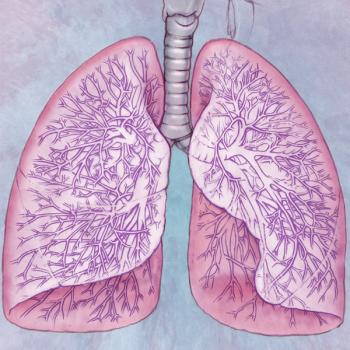
A novel agent showed a 78 percent response rate for patients with relapsed/refractory multiple myeloma, according to a recent phase 1 study.

A novel agent showed a 78 percent response rate for patients with relapsed/refractory multiple myeloma, according to a recent phase 1 study.

Ibrance use will continue to grow for patients with ER-positive, HER2-negative metastatic breast cancer, Richard Finn, M.D., says.

The treatment landscape for chronic lymphocytic leukemia (CLL) is going to drastically change over the next decade or so, says Jose Leis, M.D.

When it comes to bladder cancer, PD-1 and PD-L1 agents will become the new mainstay, says Jonathan E. Rosenberg, M.D.

Expert Howard I. Scher, M.D. discusses the future of liquid biopsy use for prostate cancer.

Linda T. Vahdat, M.D. discusses the findings of a recent phase 2 trial that may lead to the approval of a targeted therapy for triple-negative breast cancer.

Does PSA screening lead to an overtreatment of prostate cancer? Clayton S. Lau, M.D., discusses the topic.

An expert sat down with CURE to discuss standard therapies for localized prostate cancer.

Kimberly Blackwell, M.D., discusses advancements in the field of HER2+ breast cancer.

Srdan Verstovsek, M.D., Ph.D. talks to CURE about recent advances in treating MPNs.

Somatuline Depot is being explored for patients with lung neuroendocrine tumors.

CURE spoke with an expert on the importance of classifying T-cell lymphomas and what is next in this field.

Patients with activated B-cell-like lymphoma may not respond to standard treatment, so new options are being explored.

Subsets of patients with acute lymphoblastic leukemia are getting more personalized care.

Immunotherapy agents have shown significant promise in treating non-small cell lung cancer (NSCLC) in the second line, but what will their future be in lung cancer's frontline?

From promising new therapies to risk prediction, the field of lung cancer care is rapidly evolving. CURE spoke with Corey J. Langer, M.D., to get some updates.

There have been some exciting advances in using immunotherapy to treat GU malignancies such as kidney and bladder cancer. CURE sat down with Elizabeth Plimack, M.D. to discuss them.

While many new treatment options have been introduced for kidney cancer in recent years, the question of how to sequence them is still being debated.

CURE spoke with Yvonee Saenger about the future use of Opdivo and Yervoy in melanoma.

Several factors cause women a delay in getting surgery to treat endometrial cancer.

Approximately 46 percent of patients with breast cancer at high risk for recurrence but low genomic risk according to the 70-gene breast cancer recurrence assay (MammaPrint) might not require adjuvant chemotherapy.

After a long lapse in advancements for bladder cancer, the approval of Tecentriq is changing the field.

Surprisingly, Opdivo did not improve progression-free survival for a subset of patients with lung cancer in the CheckMate-026 trial. CURE sat down with Paul A. Bunn Jr to discuss why.

New standards were just established for patients undergoing surgery for DCIS.

Randy F. Sweis talks to CURE about the future of treatment for GU cancers.

Gregory Zagaja discusses the benefits of surgery for prostate cancer, as well as recent updates in the field.

Stanley Liauw discusses the current and future role of radiation therapy for patients with prostate cancer.

With a number of FDA approvals, immunotherapy is becoming a key player in the treatment of lung cancer. CURE spoke with Mark W. Kris to see what's next.

CURE spoke with Akash Patnaik about immunotherapy's role in prostate cancer.

The FDA granted the PD-L1 inhibitor Tecentriq an accelerated approval in May 2016 as a treatment for patients with locally advanced or metastatic urothelial carcinoma, following encouraging results of the phase 2 IMvigor 210 study.